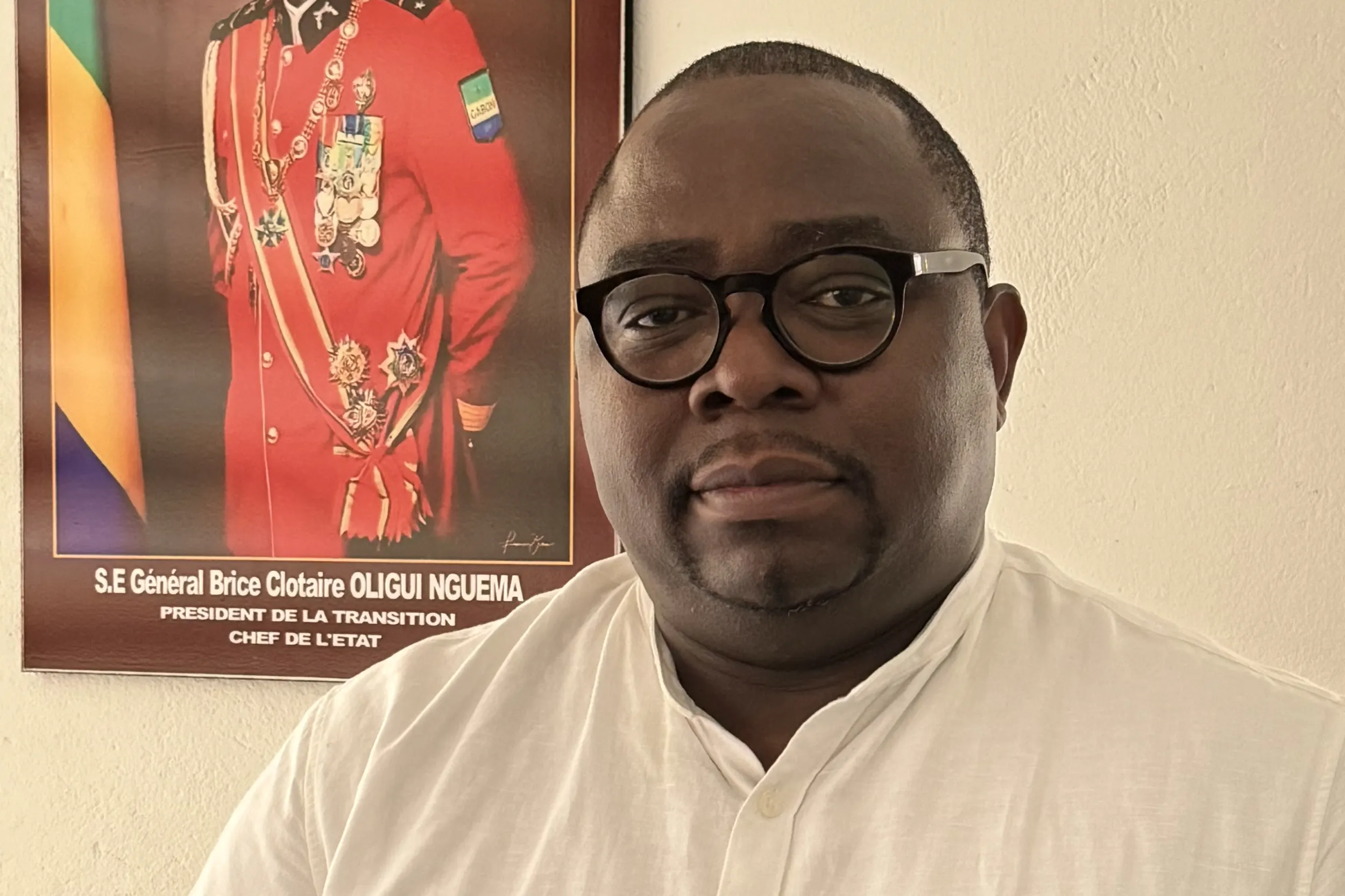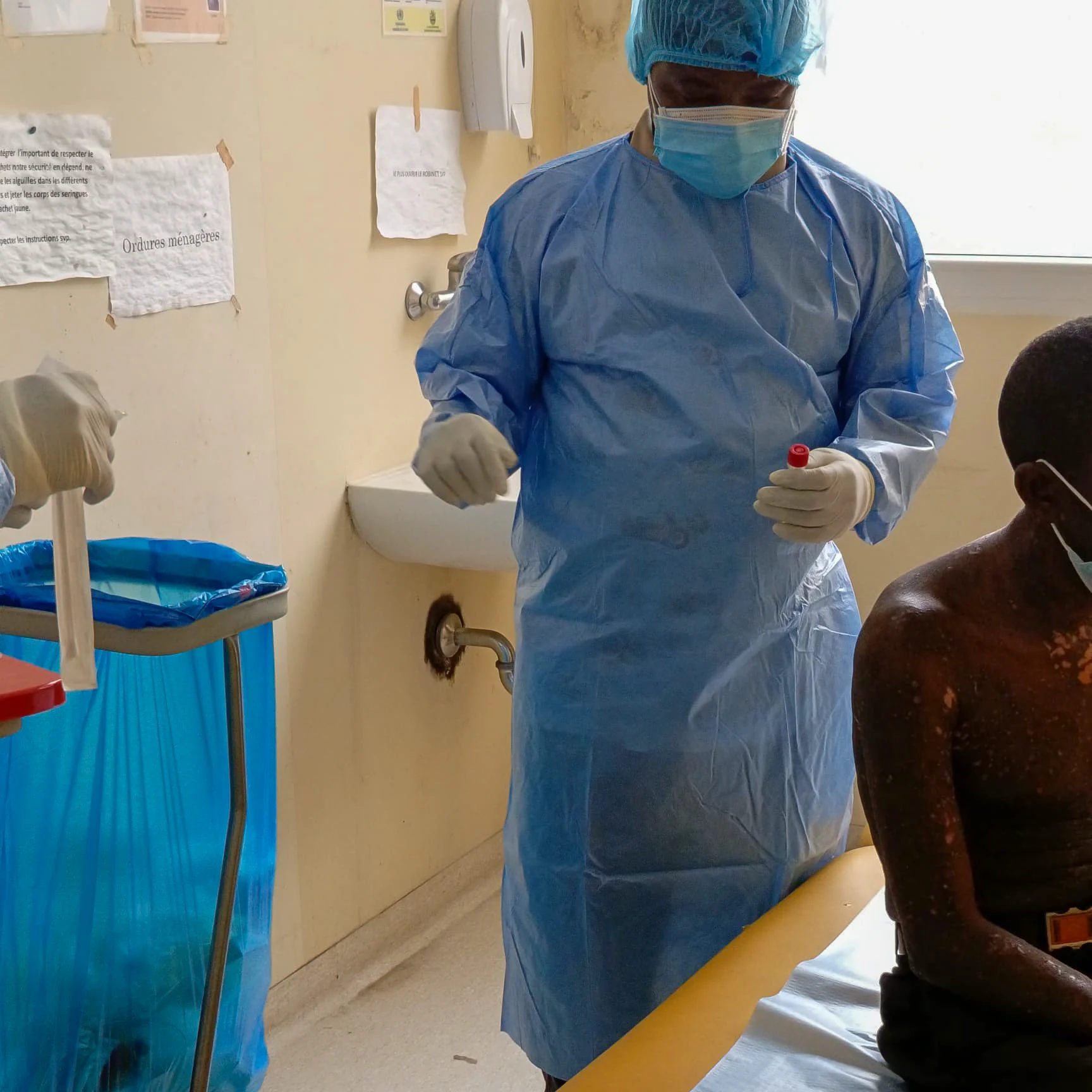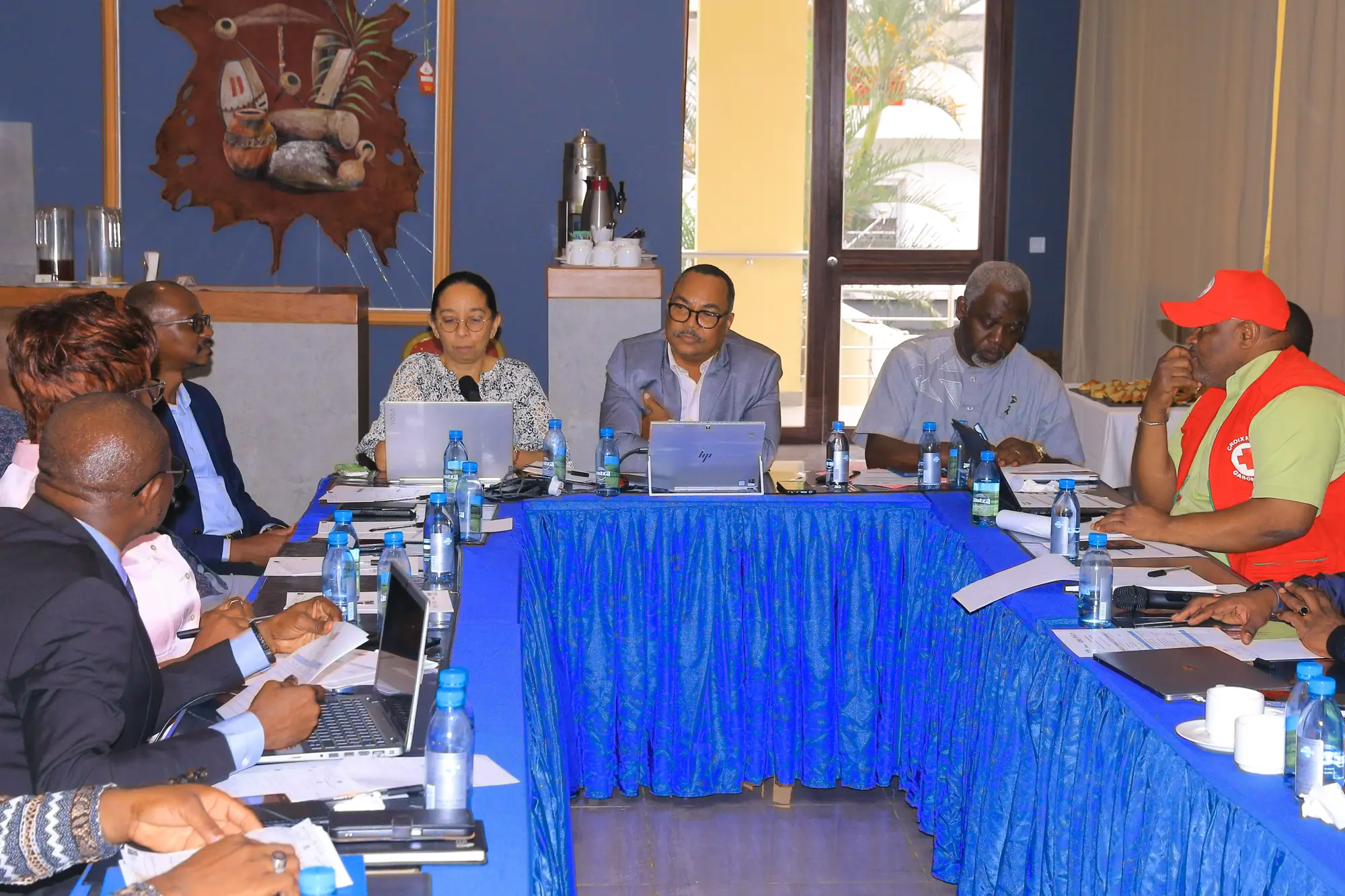-
Epidemics That Didn't Happen
-
LATEST CASE STUDIES
-
FLAGSHIP REPORTS
Epidemics that didn't happen
How Gabon stopped an mpox outbreak with no reported deaths
In the middle of a public health emergency across the Africa region, Gabon’s public health officials quickly stopped an mpox outbreak, achieving the 7-1-7 target with two confirmed cases and no reported deaths.
About mpox
Mpox is a disease that originally spread from animals to humans. It causes painful skin lesions, fever and muscle aches.

It spreads among humans through intimate or sexual contact involving bodily fluids or lesions. Exposure to virus-contaminated surfaces may also contribute to infections.
Since January 2022, 30 African countries have reported mpox cases to the World Health Organization (WHO) and have been on high alert to detect and respond quickly to mpox cases since 2024. WHO and the Africa Centres for Disease Control and Prevention declared mpox a major public health outbreak of international concern in August 2024. There is cause for continued concern: In the twelve-month period from June 2024 to June 2025, 26 countries reported 37,656 confirmed cases, including 131 deaths.

What Happened
On August 17, 2024, a man in Libreville, Gabon, developed symptoms consistent with mpox one week after returning from missionary work in Uganda, which had an ongoing mpox outbreak. He sought care at a city military hospital on August 20. Physicians were on high alert due to large mpox outbreaks in neighboring countries and an effective national awareness campaign; they quickly identified the man’s symptoms, isolated him and sought expert consultation and testing. The next day, results confirmed their suspicions. Three days later, the man’s wife developed skin lesions, fever and a rash; she was confirmed as the second case on August 23.
“Information about mpox was circulating on television and radio across Gabon. As soon as the man felt unwell and noticed he had rashes, he went to the military hospital,” said Professor Joël Fleury Djoba Siawaya, director of Gabon’s National Public Health Laboratory. “The fact that we anticipated mpox cases allowed us to confirm the suspected case and react quickly.”

The Response
Timeline
Target: 7 days
3 days
Emergence
Detection
Target: 1 day
< 1 day
Notification
Target: 7 days
4 days
Response
Hospital physicians called the national public health laboratory, which quickly sent a team to collect samples for testing. The laboratory confirmed the case within 24 hours, setting off a nationwide response including activation, on August 22, of the Epidemic Response Operational Committee; in Gabon, emergency health responses always include a joint unit comprised of the civil and military health sectors. For this particular response, the Committee convened leaders from public health, animal health, military, finance and other sectors to manage surveillance, risk communications and community engagement. When the hospital sounded the alarm, these units leapt into action, coordinating and demonstrating the power of a multisectoral response.
The communication and community engagement unit used television and radio to ramp up mpox public health messaging. At the Libreville airport, a major entry point for travelers from affected countries, the team began testing symptomatic returning travelers and distributing educational posters. Meanwhile, the laboratory team began liaising with the Institut d’Epidémiologie et de Lutte contre les Endémies (IELE), which is Gabon’s public health agency in charge of disease surveillance.
“Once the case was confirmed, the IELE took charge right away,” Professor Djoba Siawaya said. “They traced the man’s path and reached out to his contacts. We observed and tested suspected cases, monitored them to see if they developed the disease and had them isolate at home until we confirmed a diagnosis. This allowed us to prevent others from being infected.” IELE also engaged veterinary and human health organizations, environmental health groups and non-governmental organizations to coordinate a wider response effort.
There were 24 suspected cases—including the couple’s child—across five of Gabon’s nine provinces. All were tested but only the initially identified man and his wife were ever confirmed positive. Gabon’s comprehensive response activities proved effective, setting it apart from neighboring countries that have struggled to contain mpox.
Public health officials have been preparing for potential mpox cases since 2021, when the disease was first reported in the region. Preparations included a national television awareness campaign, educational radio shows and social media that alerted the public and health care workers to look out for patients with symptoms aligned with mpox.

There were challenges along the way. Low numbers of health workers made it hard to reach communities. There were also testing kit and essential supply shortages. In addition, some people were reluctant to report suspected cases because they feared COVID-19-style lockdowns. Still, Gabon was able to respond effectively to mpox by adapting existing plans—from the COVID-19 pandemic and a 2023 Marburg outbreak in neighboring Equatorial Guinea—for the current outbreak. Dr. Raymond Ondzigue, deputy director of IELE, noted that response teams created during those emergencies were and remain able to jump into action very quickly.

Officials in Gabon used the 7-1-7 target to retrospectively assess their mpox response. The team detected the case in four days, reported it in less than one and completed their early response actions within five days—exceeding the target. Ondizigue said the country was already interested in 7-1-7 prior to the outbreak and that Gabon now plans to formally adopt the target nationwide.
“Epidemics are an ongoing concern in Gabon,” Ondzigue said. “Putting the 7-1-7 target into action for the first time to assess the 2024 mpox outbreak response has allowed us to be more responsive—in fact, we plan to formally adopt 7-1-7 nationwide. Regionwide adoption of the 7-1-7 target could also prove very useful in stopping future outbreaks if other countries start and continue to use it.”
Vigilance is also key. Because mpox continues to circulate in neighboring countries, there is no time for complacency. To ensure continued success in preventing an outbreak, Gabon must be ready to replicate and repeat the steps it took in August 2024 should any cases emerge.
Enablers
Collaboration between public health agencies
Availability of rapid response teams
Risk communication and community engagement
Do you know of an epidemic that didn't happen?
If so, we’d love to highlight your story. Please reach out to
info@resolvetosavelives.org